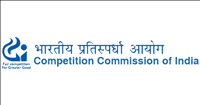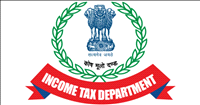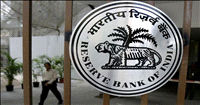RBI bars payment companies from issuing proprietary QR codes
26 Oct 2020
The Reserve Bank of India (RBI) has barred all payment system operators from issuing new proprietary QR codes and suggested measures for moving towards interoperability.
- The authority, derived from membership agreements, to set behavioural and professional standards and enforce them on the members;
- Objective and well-defined processes to make rules and enforce them among members;
- Standardised procedures for handling conflicts and disputes, as well as methods to resolve them through a transparent and consistent dispute resolution mechanism;
- Effective means of oversight over its members and ensuring that they adhere to the rules and regulations of the industry as also mutually accepted ethical and professional standards of behaviour; and
- Develop surveillance methods for effective monitoring.
- To be eligible to be recognised as SRO by RBI
- The SRO shall be set-up as a not-for-profit company under the Companies Act, 2013.
- Only regulated payment system entities, viz, banks and non-bank PSOs can be members of an SRO.
- The SRO shall be professionally managed with clear bye laws.
- The memorandum/bye laws of the SRO shall specify the criteria for admission of members and the functions it will discharge. It shall also provide for the manner in which the Board of Directors (governing body) would function.
- RBI may, if it deems necessary, require that the appointment of important positions in the board of directors of the SRO be subject to its prior approval.
- The SRO shall be financially viable to carry on the activities handled or assigned to it. The fee for membership of the SRO shall be reasonable and uniform across all members.
- Requirements related to management of the SRO
- The board of directors and management of the SRO shall satisfy the fit and proper criteria (FPC) on an ongoing basis. FPC would mean that the person is of high integrity, with blemishless character and having relevant expertise in relevant fields in the payments ecosystem.
- Any change in directorship or adverse development about any Director shall be immediately reported to RBI.
- At least one-third of members in the board of directors shall be independent and not associated with member institutions.
- The board shall frame a code of conduct to be followed by its members.
- The SRO should be in a position to monitor adherence to the code of conduct as well as compliance with regulations by its members.
- The SRO shall follow transparent practices for establishing its governance processes; setting standards, prescribing benchmarks, etc.
- Grant of recognition as an SRO
- A group / association of payment system operators (banks as well as non-banks) shall apply to RBI seeking recognition as an SRO.
- RBI reserves the right to require the applicant to submit further information or clarification as deemed necessary, before deciding on the grant of recognition as an SRO.
- On finding the applicant suitable, RBI shall issue a “Letter of Recognition” as an SRO.
- RBI, if in its considered opinion, concludes that the SRO is functioning in a manner detrimental to the public interest, it may withdraw its recognition to an SRO after giving due opportunity to the entity to further its views / comments.
- A recognised SRO shall serve as the representative voice of its members in public discussions or in interactions with RBI or any other authorities or in any communication with other bodies.
- It shall work towards establishing minimum benchmarks, ethical and behavioural standards and help instill professional and healthy market behaviour among its members. It shall work towards development of not only the entities it represents but also the payment industry as a whole.
- SRO shall promptly inform RBI about any violation that comes to its notice, of the provisions of the Payments and Settlement Systems Act, 2007 or any other guidelines / regulations / directions issued by RBI.
- The recognised SRO shall establish a uniform grievance redressal and dispute resolution framework across its members, including addressing inter-PSO issues.
- SRO shall impart training to the staff of its members and others. It shall conduct awareness programmes for spreading awareness about safe payment transactions
- It shall conduct or promote research and development for creating a secure and safe payments ecosystem.
- SRO shall carry out any work assigned to it by RBI and examine any proposals or suggestions referred to it by RBI.
- SRO shall provide any information, including data, sought by RBI periodically or as requested.
- The recognised SRO shall be invited for periodical interactions with RBI, and shall reasonably be expected to look at the larger picture of the segment / industry in offering its views / inputs / suggestions. The SRO shall strive to address concerns beyond the interest of its membership, viz. to protect customers, participants and other stakeholders in the ecosystem.
- SRO shall play a constructive role in supplementing and complementing the present regulatory / supervisory arrangements.
- It shall abide by the directions issued by RBI from time to time.
- SRO shall continue to adhere to the criteria under which it has been recognised as an SRO at all times.






























